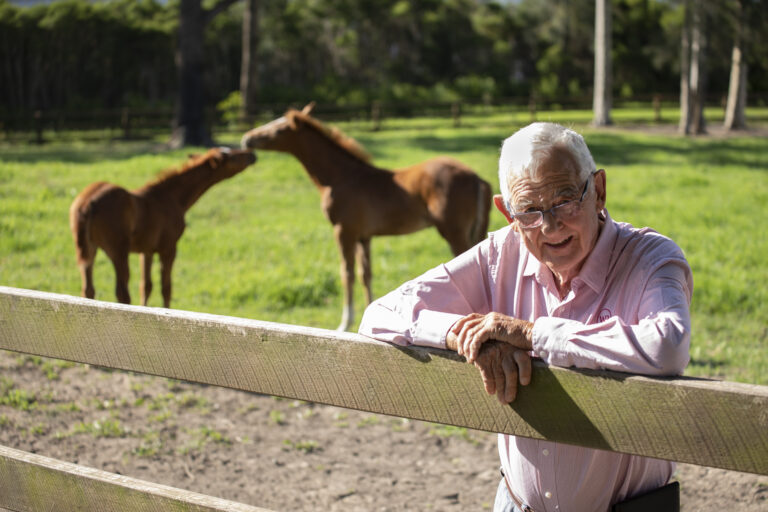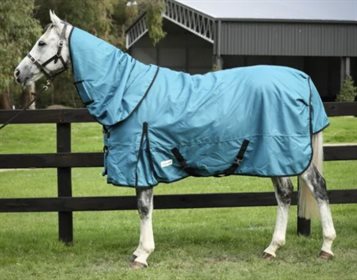Our older horses’ joints need extra care in Winter.
Just like their older owners, an arthritic horse with stiff and achy joints will feel Winter in their bones. The Winter months, which are accompanied by cold, wet, and windy conditions, are challenging for arthritic horses.
Caring for your arthritic horse during Winter involves managing their nutrition, veterinary care, turnout, exercise, stabling, and importantly, their joint health.
A Holistic Approach for Arthritic Horse Care
Supporting your arthritic horse year-round requires a whole of horse approach. Every element of your horse’s management is interdependent to give them the best quality of life and promote longevity.
This is especially important during Winter when arthritis and other joint disorders become particularly burdensome.
Arthritic Horse Care During Winter
Caring for your arthritic horse should begin with ample preparation in the Autumn months, with a focus on their body condition score and a comprehensive veterinary check-up to assess their diet and health.
As the thermostat drops, start implementing these best practices for your arthritic horse during Winter:
-
Nutrition – a forage first diet which prioritises quality forage sources over grain supports healthy digestion and body condition and keeps your horse warm through the digestion of fibre in the hindgut.
-
Supplement – even the most well-balanced diet can’t provide everything your horse needs for joint health. A daily joint supplement like 4CYTE™ EPIITALIS® FORTE Gel for horses works to protect and repair their joints.
-
Turnout – regular turnout, preferably with other horses, is critical to healthy circulation, muscles, joints, and hooves. Turnout should only be limited in the event of extreme weather, illness, or injury.
-
Exercise – an exercise regime that caters to your horse’s fitness levels is also important. Always provide your horse with 10-15 minutes to warm up and cool down and avoid riding on hard surfaces.
-
Dental care – healthy dentition is integral to proper digestion and absorption of nutrients. Your horse should receive dental checks 1-2 times a year.
-
Hoof care – in addition to avoiding common hoof problems in Winter, regular trimming every 4-6 weeks will promote correct balance.
-
Vaccination and de-worming – your horse should always be up to date with their vaccination and de-worming schedule, including in Winter.
-
Unlimited access – during Winter, your horse should always have unlimited access to quality forage, water, and free-choice shelter.
-
Stabling – if your horse is stabled at times, ensure their shelter is well-ventilated for their respiratory health, and choose a soft, dust-free bedding to offer comfortable and supportive footing.
-
Rugging – if your horse is old, infirm, or underweight, they may benefit from a Winter rug to keep warm. Make sure you choose a well-fitting turnout rug that’s waterproof.
-
Footing – where possible, provide turnout and exercise on flat terrain if your horse has severe arthritis. Steep inclines will strain their joints which can lead to joint pain. Additionally, avoid slick, icy surfaces when riding.









